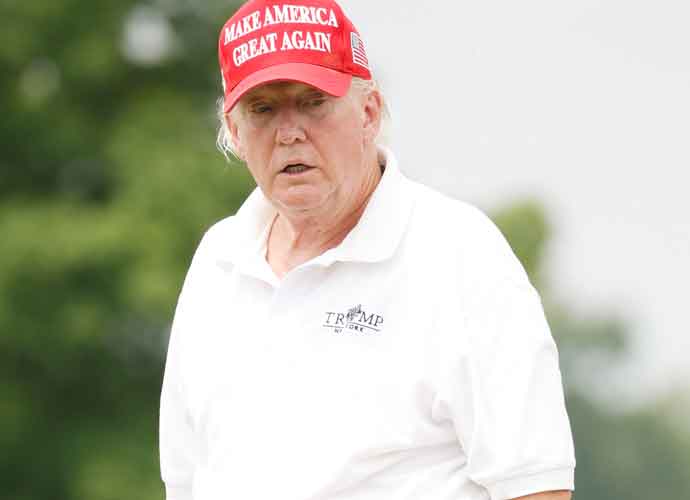Trump Proposes Eliminating U.S. Income Tax And Replacing It With Higher Tariffs On Imports
Last week, during his first visit to Capitol Hill since the Jan. 6 riots, former president and presumptive Republican nominee Donald Trump suggested to House Republicans a significant overhaul of the U.S. tax system – proposing to eliminate income taxes and replace it with an “all tariff policy.”
Trump’s proposal calls for a 10% increase in import tariffs as a substitute for the existing U.S. income tax system. Additionally, he highlighted the potential use of tariffs to bolster negotiation leverage against “bad actors.”
“Most intriguing policy idea from the GOP meeting at the Capitol Hill Club this morning: Trump briefly floated the concept of eliminating the income tax and replacing it with tariffs,” wrote Rep. Thomas Massie (R-Kentucky) on social media.
Trump alluded to this tax idea following his praise of President William McKinley, notably remembered for the McKinley Tariff Act of 1890. The law substantially increased tariffs on imports by almost 50%, resulting in the significant loss of 93 House seats for Republicans in the subsequent election.
Subscribe to our free weekly newsletter!
A week of political news in your in-box.
We find the news you need to know, so you don't have to.
Trump’s proposal underscores his longstanding advocacy for tariffs, a stance he championed through his first term in the White House. This suggests that if he were to beat President Joe Biden in November, he is likely to pursue a significantly more protectionist trade agenda.
Economists argue that while higher tariffs may boost domestic businesses, they ultimately burden consumers by driving up prices. This occurs as companies are compelled to raise prices on goods and services to offset the costs incurred from tariffs.
In response to Trump’s proposal, the Biden campaign voiced concerns about its potentially devasting impact on low-income families. They emphasized that under the current system, these families often have minimal or no tax liabilities. However, under Trump’s proposal, they would face higher prices without equivalent safeguards.
“The only people who benefit from this regressive, thoughtless policy are Trump’s billionaire donors, who get a windfall at the expense of working-class Americans,” said James Singer, spokesman for the Biden campaign.
“American families get higher costs, Trump’s rich donors get richer,” he added.
Currently, tariffs contribute to a modest fraction of the $4.4 trillion annual revenue collected by the U.S. government. According to the Treasury Department, in the 2023 fiscal year, custom duties, encompassing tariff payments, totaled $88.3 billion. In stark contrast, income taxes generated over $2.2 trillion during the same period, exceeding tariff revenue by more than twentyfold.
Significant increases in tariffs are necessary to elevate tariff revenues anywhere close to income tax levels, far surpassing the 10% hike initially proposed by Trump.
Paul Krugman, renowned New York Times columnist and Nobel Prize-winning economist, estimated that it “would require an average tariff rate of 133%.”
Trump’s proposal would mark a return to the past, reminiscent of the era before the establishment of the income tax in 1913, where tariffs held a significant role in government revenue. According to the Congressional Research Service, tariffs have contributed no more than 2% of federal revenues over the past 70 years.
1 Comments
Leave a comment
Get the most-revealing celebrity conversations with the uInterview podcast!






If I am not mistaken Trump said Mexico would pay for his wall and that he would not golf as much as his predecessors. He did neither of these and any changes he made in office was for his own benefit.